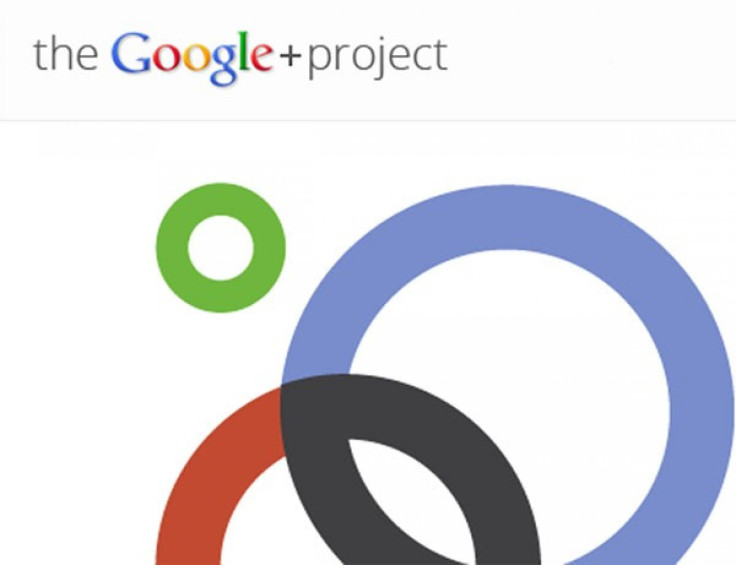Google+ Runs Out of Steam but Far From Being Dead: Six Reasons Why

Internet search engine giant Google Inc.'s swansong Google+ (or Google Plus) is running out of breath if the latest data from Experian Hitwise is any indication.
The social phenomenon, which chalked up 20 million users within the first three weeks of debut, is now witnessing a traffic and usage drop, Hitwise said on Wednesday.
According to Hitwise, visits to Google+ soared 283 percent for the week ending July 16 compared to the week before and 821 percent for the week ending July 9 compared to the week before that.
However, the numbers weren't too good for the week ending July 23 - Google+ received only 1.79 million visits (down 3 percent compared to previous week) and the average time spent on the site was also down 10 percent, compared to previous week, to 5 minutes and 15 seconds.
Meanwhile, world's No.1 social networking site Facebook has trumped Google+ by bringing out Facebook for Business (https://www.facebook.com/business/).
This isn't good news for Google+, which was criticized recently for ignoring the needs of the corporate.
Facebook for Business teaches companies how to grow their businesses using Facebook's "powerful marketing tools" including Facebook Pages and Facebook Ads.
Is the buzz around Google+ dying? Will Google+ meet the same fate as its predecessors Google Buzz and Google Wave, both of which created quite a stir when they were launched but over time, participation waned and the plugs were pulled off the projects?
The answer is no. It's too early to write off Google+. In fact, only a fool will write off Google+ because the site is still in its beta phase. In fact, Google+ will not only continue to survive but also it will grow to become a formidable foe of Facebook.
There are six main reasons why:
Blistering Pace of Growth: If we take the latest figures from Hitwise to be an aberration, we cannot help but say that compared to Facebook, Google+ has been growing at a blistering pace. Facebook, which opened to the public in September 2006, had only 30 million subscribers by March 2007. The site, however, now has 750 million users.
Moreover, within a short span of time Google+ has become the 42nd most-visited social networking site and the 638th most-visited site overall in the U.S, according to Hitwise.
Privacy Approach: Privacy issues have been Facebook and Twitter's bugbear for long. Anything posted up on Facebook or Twitter is visible to all, be your family, your boss or even complete strangers. Facebook has adopted a cavalier attitude towards this. On the other hand, Google has attempted to circumvent this problem by introducing "data liberation" tool in Google+ which allows you to pack up and take your data away from Google+ should you decide to leave the service.
If you want to leave Facebook, it's a Herculean task to permanently delete your Facebook profile.
Circles: With Circles, Google+ users will be able to manage their contacts better and content-sharing becomes safer and easier. With Facebook, everyone is a friend, be it your father, mother, brother, sister, boss, boss' wife and your boss' cat even! But with Circles, you can easily organize your social network by grouping contacts into anything you can possibly imagine - "customers," "agents," "fans" etc - the possibilities are enormous. The groups can be formed by dragging the contact's picture/photo over a circle that represents the group (a group of people can also be dragged over a circle!)
In other words, Circles will allow Google+ users to focus on the things a subset of the profile's contacts are interested in and will help it to separate the signal from the noise. This could be Google+'s biggest strength as it the biggest problem with not only Facebook but with Twitter as well.
Hangouts: Perhaps the greatest strength of Google+, the multiuser video conferencing tool allows up to 10 users to see and talk to one another at the same time. The one with the loudest voice gets the centerstage. Hangouts can be the future of webinars and it has already sparked users' imaginations about potential business use cases. Despite Facebook announcing the integration of Skype videoconferencing, nothing will be able to beat Hangouts, at least for now.
Integration: A major strength of Google+ and its advantage over Facebook is integration. Almost all the existing Google online services, from Search and Documents to Email (Gmail) and Video, will be built into Google+ social networking features. It will allow the user to monitor all Google+ events in such a way so that the user never misses out on anything, anywhere, anytime.
Search: Google's most powerful weapon is its unrivaled search engine, imitated by many but mastered by none. If Google integrates its own Google+ live feed Sparks with the Search service, it will blow away Facebook because though Facebook has had a huge headstart as a social network site yet it has little or no penetration into the search market. With Facebook, a user must leave the site to find stuff to share or wait until their friends share it with them. On the other hand, with Sparks, you can get an instant fountain of relevant information to share with friends.
In conclusion, Google+ may have hit a roadbump but it's far from being a wreck. The red flag may be up but let's not forget that Google+ still hasn't opened up to the public. Given Google's powerful ecosystem of products and services and plenty of hype, Google+ will have no problem in attracting new registered users and converting them into returning visitors.
If anything, the drop in numbers only indicate that users aren't too happy with the exclusivity angle that Google+ currently presents. In other words, it could indicate a marketing gimmick that's run out of steam.
© Copyright IBTimes 2024. All rights reserved.











